Flowcarbon Company Analysis Report
I. Company Profile
Founded in 2021, Flowcarbon is a cross-border technology company dedicated to modernizing the global carbon market, headquartered in New York, USA, with an office in London. The company focuses on financializing, standardizing, and digitizing carbon credit certificates in the voluntary carbon market (VCM) to help build more efficient, transparent, and liquid financing channels between carbon project developers and investors.
Co-founded by investment banking experts, sustainable infrastructure investors and blockchain developers from Wall Street, the company's mission is to apply financial innovation, structural tools and blockchain technology to the value mining and circulation scenarios of carbon assets, and break the problems of low transparency, high transaction costs and geographical barriers in the current carbon market.
Flowcarbon is not only a technology platform provider, but also a designer of carbon project finance solutions, committed to digitally mapping, splitting, packaging, and trading carbon credits, and serving the financing of carbon neutrality projects, the realization of corporate carbon goals, and the construction of channels for investors to participate in sustainable finance.
2. Core business composition
Flowcarbon's business revolves around three core modules:
1. Project Finance Financing)
helps developers of carbon credit projects in areas such as forest protection, bio-natural gas, biochar, and regenerative agriculture raise early-stage funds. Its project financing model is designed as a "carbon credit asset-based financing structure" based on the expected future earnings of carbon credits, and sells prepaid claims or income certificates to investors.
This type of financing structure often adopts convertible bonds, private credit, revenue return sharing, etc., to achieve risk splitting and consideration matching between the financing end and the income side of carbon projects.
2. Transferable Tax Credits and Carbon Finance Structuring
In
response to the carbon tax incentives being promoted in the United States and other countries, such as the IRA Act, Flowcarbon has built a transferable tax credit market. The core idea is to help enterprises with carbon credit rights sell the remaining credits in the "credit docking market" through technology platforms, so as to realize the financialization of taxes and the liquidity release of carbon incentive mechanisms.
The company designs credit enhancement mechanisms such as third-party custody, credit guarantee, transaction stratification, and confirmation and repurchase for these transaction structures, so as to make the risk management of the carbon finance market more controllable.
3. Blockchain carbon credit platform and tokenization products
Flowcarbon's digital innovation module is reflected in its on-chain carbon credit tokenization system, which aims to automate the issuance, trading, auditing, and reporting of carbon credits through blockchain smart contracts. The Goddess Nature Token (GNT), which had been planned to be launched, is its flagship token product, which will be used to anchor natural carbon removal projects certified by institutions such as the Verified Carbon Standard (VCS).
The platform was initially developed on the Celo blockchain and has attempted to establish compatible interfaces with multiple Web3 ecosystems, including DeFi protocols, ReFi projects, NFT displays, and carbon asset registration platforms.
3. Technical Architecture and Digital Financial Capabilities
Flowcarbon's platform technology is based on the carbon credit life cycle as the core process, covering the following key modules:
Digital asset registration system: Each unit of carbon credit is mapped to on-chain tokens one by one, and there is a traceability and audit channel.
Smart contract liquidation mechanism: Under the premise of complying with the certification rules, the carbon offset status will be automatically triggered or the investment income will be released.
Data API docking module: Establish a data synchronization interface with project developers, credit rating agencies, and carbon registration agencies to realize dynamic verification of carbon credits.
Structured product engine: It can generate different types of income certificates based on the value of carbon assets, such as carbon income options, carbon project bonds, convertible bonds, etc.
The overall architecture emphasizes modular design, allowing different application parties (such as funds, exchanges, and enterprises) to flexibly access their underlying carbon assets, and obtain secondary market trading capabilities and risk control support through the technology platform.
4. Market Positioning and Cooperation Ecology
Flowcarbon is located in a market at the intersection of "digital carbon market" and "carbon credit financialization services", and its main customers include:
Voluntary carbon market project developers (VERRA, Gold Standard project)
The corporate ESG department has built a set of ecological cooperationnetworks with carbon neutrality purchaser
private equity funds, sustainable bond funds, tax
incentive hedging platforms for infrastructure investment institutions, blockchain ReFi protocolsfor banks and financial advisory institutions
, and Flowcarbonfor Web3 ESG projects
, including off-chain carbon consulting institutions, technology verifiers, Forensic auditors, as well as on-chain DeFi protocols, NFT platforms, DAO communities, etc.
Its value proposition is to build a "carbon credit financialization infrastructure", which not only promotes the realization of carbon credits and the flow of carbon incentive finance, but also is committed to integrating ESG investment logic with Web3 user experience to realize the docking of on-chain finance and off-chain environmental assets.
V. Organizational Structure and Team Background
Flowcarbon is composed of a core team with diverse backgrounds, and the team members have the following characteristics:
The core founding members are from Blackstone and Goldman Sachs Familiar with high-end financial instruments such as structured finance, infrastructure investment, and credit derivatives design;
The technical team has experience in the development of the original Coinbase, Celo, and Ethereum communities, and has mastered decentralized architecture, smart contract design, and Layer1 compatibility management.
The advisory team includes ESG policy experts, consultants from carbon credit certification agencies, and sustainable energy research scholars.
The company adopts a global distributed office model, with some members participating in policy research and financing design in the United States, and others responsible for carbon project screening and digital product deployment in Europe, the Middle East and other regions.
6. Risk Control System and Compliance Structure
Flowcarbon emphasizes the compliance and regulatory friendliness of its platform services, and protects the authenticity of assets, the legitimacy of circulation and the rights and interests of investors through the following mechanisms:
carbon credit authenticity verification: The platform only supports on-chain mapping with projects compatible with official carbon credit registrants (such as VERRA and Gold Standard), and all assets need to be audited and verified.
Third-party custody system: In cooperation with a compliant custodian, off-chain verification and custody registration are required before asset token mapping.
Risk segregation: All structured products have a clear income tiering and legal contractual framework to ensure that unsystematic risks are clearly isolated.
KYC/AML review mechanism: Platform access parties must complete identity verification and anti-money laundering investigations, and comply with the regulatory requirements of major countries for digital asset transactions.
In addition, the company follows the guidelines of the US SEC for token financing and financial compliance, and plans to include some products in the Reg D private placement exemption clause or establish a security token framework in the future.
7. Development Challenges and Countermeasures
The
main development challenges faced by Flowcarbon include:
Blocked issuance of tokenized products: In the early attempt to issue GNT, the launch of the token was delayed due to regulatory review and changes in the market environment. In this regard, the company adopts user refunds and adjusts the issuance mechanism;
Serious fragmentation of carbon credits: At present, the standards of the voluntary carbon market are different, and the scarcity and surplus of carbon credits coexist, so it is necessary to establish a unified circulation standard and quality screening mechanism.
High regulatory uncertainty: The intersection of carbon finance and crypto assets is still in a gray area, and companies need to pay close attention to policy changes in the United States, the European Union and other places;
Web3 conflicts with ESG investment logic: Some traditional financial users have insufficient trust in on-chain mechanisms, and need to strengthen their credibility through custody, auditing, transparency, and other means.
The company's coping strategies include: introducing more institutional partners as market makers and guarantors, adjusting product positioning from token issuance to structured financing, and gradually building a modular ecology of "information standardization + financialization toolbox" for on-chain carbon assets.
8. Future strategic path
Flowcarbon's strategic goals for the next two years include:
Promote the systematization of the tax credit market: Build a cross-state and cross-project tax credit registration and transfer market to achieve a standard circulation of carbon benefits.
Establish a cross-chain carbon asset token protocol: allow carbon credits to be mapped to mainstream chains such as Ethereum, Polygon, Solana, etc., and expand the scope of on-chain asset flow.
Cooperate in the development of carbon-linked bonds: Cooperate with fund companies and development financial institutions to launch ESG bonds or carbon-linked derivatives.
Build an institutional service platform (SaaS): provide corporate customers with a comprehensive service platform for carbon account management, carbon credit procurement, and ESG report preparation.
Promote on-chain transparent ESG asset ratings: Launched a smart contract-driven on-chain asset scoring system to support project transparency, carbon effectiveness, and fund flow tracking.
With the help of financial engineering and blockchain systems, Flowcarbon hopes to redefine the whole chain process of "issuance-financing-trading-offset" of carbon credits and build a new generation of green financial infrastructure.
9
. Summary Flowcarbon is a hybrid technology company that combines carbon finance, structured credit, and blockchain tokenization capabilities, and its business is rooted in the real carbon credit market, but it is reshaping its path to value through technology and financial instruments. With structured finance and digital carbon assets as the entry point, the company not only serves global sustainable project developers, but also opens up new ESG investment directions for capital market participants.
Although its early tokenization attempts faced market headwinds and regulatory challenges, the company gradually shifted its direction to focus on project financing and compliance financial services, demonstrating its flexible strategic adjustment and professional execution. In the future, Flowcarbon is expected to become a bridge platform in the ReFi field, connecting the off-chain carbon market with the on-chain digital financial system, and promoting sustainable finance from concept to large-scale implementation.












